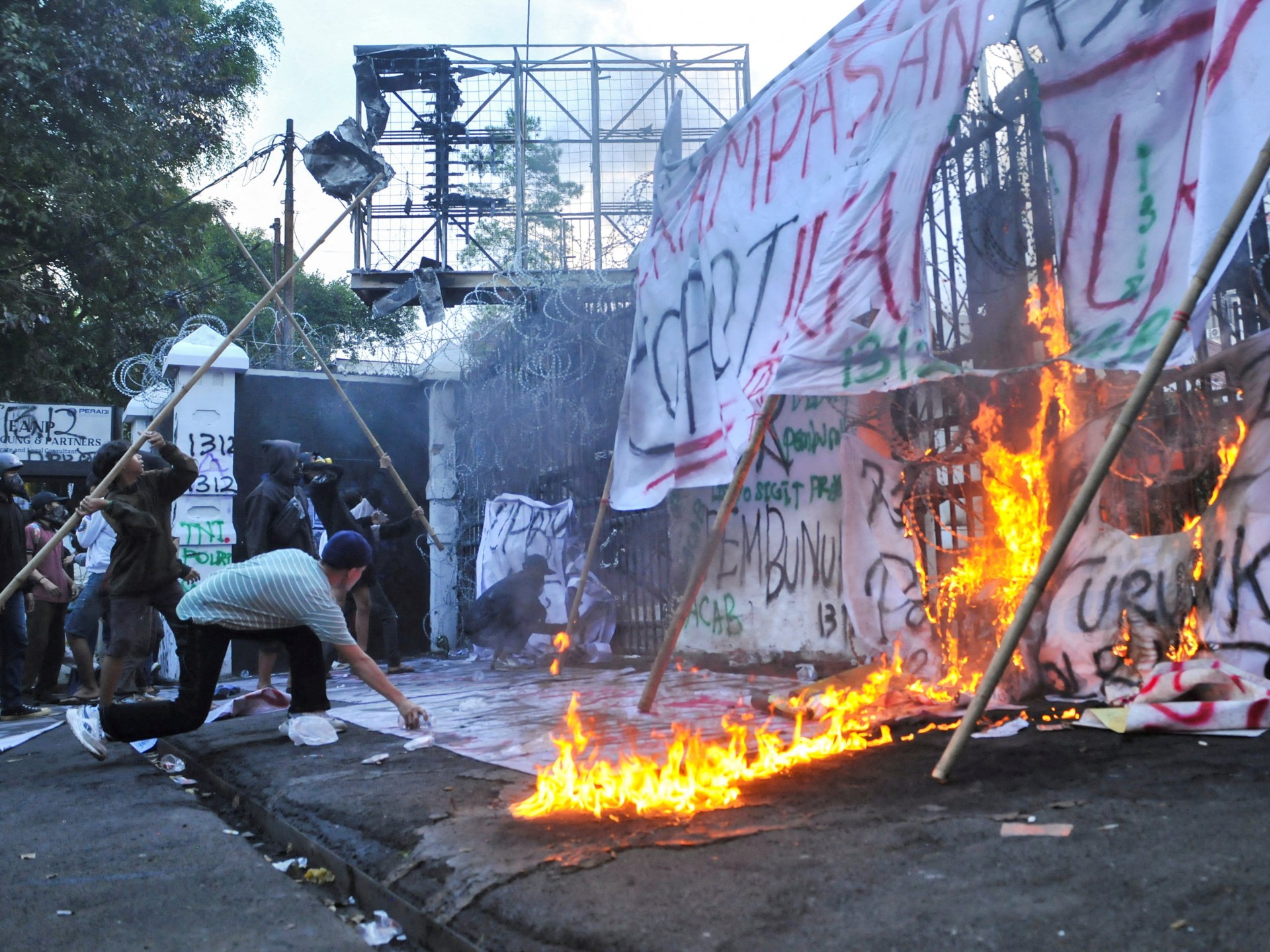The Islamic University of Bandung’s student body says security officials ‘brutally attacked’ the campus with tear gas.
Published On 2 Sep 2025
Indonesian police have used tear gas on crowds of protesters near two universities, student groups and authorities said, amid ongoing nationwide protests targeting government spending, and burgeoning fury following a motorcycle taxi driver’s death after being hit by a police car.
On Tuesday, authorities deployed tear gas around the campuses of the Islamic University of Bandung (UNISBA) and nearby Pasundan University, more than 140km (86 miles) west of the capital, Jakarta.
Muhammad Ilham, a Pasundan student, told the Reuters news agency that authorities fired tear gas canisters from outside the campus gates as well as rubber bullets.
“There was a student who got hit by the rubber bullet, two shots,” he said.
At least eight people have died in the protests since last week, Coordinating Minister for Economic Affairs Airlangga Hartarto said on Monday.
According to police official Hendra Rochmawan, authorities on Tuesday did not enter the campuses but tried to break up crowds of non-student protesters who had been seeking protection within the university grounds.
UNISBA rector Harits Nu’man echoed the police statement and confirmed that the campus had been used as a medical hub for protesters.
Nevertheless, the UNISBA student body accused security forces of seeking to silence dissent, saying they “brutally attacked” the campus as tear gas caused breathing problems for some students.
Mass unrest
Al Jazeera’s Jessica Washington, reporting from a crowd of motorbike taxi drivers in central Jakarta, said they were gathering to honour the 21-year-old driver who was killed after being hit by an armoured police vehicle during the protests.
“There are thousands of them. They say to demonstrate the power of peaceful assembly so they can honour their colleague, that they can call for their various demands, including economic inequality and do it peacefully,” Washington said.
She added that many civil society groups in Indonesia were currently “raising the alarm” over a civil society leader who was arrested late last night in Jakarta.
More protests are expected on Tuesday outside parliament in Jakarta, organised by a coalition of women’s groups.
Since the protests began last week, at least 20 protesters have gone missing as anger increased due to mass overspending by lawmakers and police violence, according to the Commission for the Disappeared and Victims of Violence (KontraS).
The group said 20 people were reported missing in the cities of Bandung and Depok on Java Island, and the administrative cities of Central Jakarta, East Jakarta and North Jakarta.
University students have long been regarded as vanguards of Indonesia’s democracy, having taken a leading role in protests that helped topple President Soeharto in 1998.
Current President Prabowo Subianto, a military leader under Soeharto, is facing the first major test of his leadership. He met labour unions, some of which joined last week’s protest pushing for a rise in the minimum wage, and said he told lawmakers to discuss labour laws, according to a statement from his office.
Indonesians have added pink and green hues to their social media profile pictures in response to the protests, with some using the hashtag #ResetIndonesia and outlining their demands for the government.
